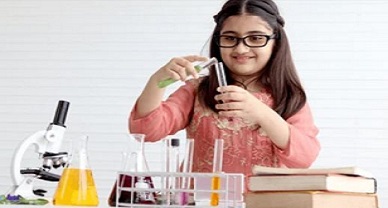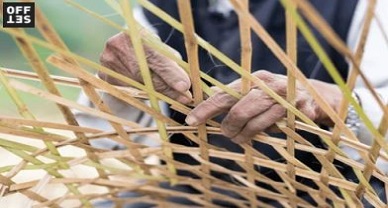Wipo Treaty on Ip, Genetic Resources and Traditional Knowledge
INTRODUCTION
Genetic resources (GRs) are defined in the Convention on Biological Diversity (CBD) 1992 as genetic material of a plant, animal, microbial or other origin containing functional units of heredity that has actual or potential value. Genes cannot be directly protected as intellectual property, but innovations made with them can be protected usually with the help of a patent.
Due to the fact that local communities and Indigenous Peoples have used and conserved certain genetic resources for many generations, these resources are also linked to traditional knowledge. This information may help create a protected invention as it is occasionally utilized in scientific study.
Traditional knowledge (TK) is a living body of general knowledge that is developed, sustained and passed on from generation to generation within a community, often forming part of its cultural or spiritual identity.
In a few words, TK is understood as:
- Knowledge, know how, skills, innovations or practices;
- That are passed between generations;
- In a traditional context; and
- That form the part of the traditional lifestyle of indigenous and local communities who acts as their guardian or custodian.
MAIN BLOG
A Treaty on Intellectual Property, Genetic Resources (GR), and Associated Traditional Knowledge (TK) was finally approved by WIPO on May 24, 2024, after 14 years of negotiations and 25 years since Colombia first voiced concerns about defending the intellectual property rights of indigenous communities. This treaty seeks to create an international framework for the protection of indigenous peoples’ rights to genetic resources and related traditional knowledge through intellectual property mechanisms. It was developed as a result of the work of WIPO’s Intergovernmental Committee on IP and Genetic Resources, Traditional Knowledge, and Folklore (IGC).
In September 2023, the WIPO Secretariat called a Preparatory Committee of the Diplomatic Conference to discuss the “administrative provisions and final clauses” of the document (Articles 10 through 23) and to set up the protocols for the diplomatic conference. To fill in any gaps in the “substantive articles” (Articles 1 through 9) of the Chair’s text, an extra session of the IGC was called in September 2023, ahead of the Preparatory Committee. The rules of procedure for the diplomatic conference were adopted by the Preparatory Committee and special session, although the WIPO Secretariat’s “administrative provisions and final clauses” and the Chair’s “substantive articles” only underwent minor modifications. After long lasting negotiations WIPO adopted the treaty on May 24, 2024.
Although the Treaty’s adoption is a noteworthy accomplishment, Article 17 says that in order for it to come into effect, at least 15 member states must ratify or accede.
The Treaty, which reflects the difficulties and complexity involved, is the result of lengthy talks that lasted for many years. Notably, it contains a novel provision requiring disclosure for innovations that make use of genetic resources and traditional knowledge. This provision aims to address biopiracy concerns and ensure equitable benefit-sharing. Although the Treaty’s passage was widely celebrated, there are legitimate worries about certain of its provisions, such as the need that member nations renounce the enforcement of some patent quality safeguards a change from customs in nations like India and other issues.
The treaty requires Genetic Resources and Traditional Knowledge source disclosure on two fronts:
First, the applicant is required to reveal the nation of the GR if claimed invention is based on GR.
Second, if the claimed invention is founded on a related traditional knowledge, it must identify the native people or local community from where the related traditional knowledge originated.
The Treaty offers the applicant some leeway by stating that, in the event that neither of these sources is accessible, the applicant may provide any source of GRs or related TKs from which they have acquired the necessary information or resource (Article. 3.1(b) and 3.2(b) r/w Article. 2). Additionally, the applicant may make a statement claiming that even this information is not accessible, coupled with an assurance that the information in the declaration is genuine and accurate to the “best knowledge” of the applicant.

The treaty’s ratification is a major victory for India and the global south, which are recognized as the epicenters of biological variety and traditional knowledge. In addition, the ministry of commerce and industry stated that, once the treaty is ratified and put into effect, contracting parties will be required to impose mandatory disclosure obligations on patent applicants, requiring them to reveal the country of origin or source of genetic resources when the claimed invention is based on genetic resources and traditional knowledge. This will provide additional protection for Indian genetic resources and traditional knowledge, which, although protected in India, are vulnerable to appropriation in nations without disclosure obligations. Consequently, this treaty establishes a unique framework inside the IP system for supplier nations of genetic resources and related traditional knowledge by establishing worldwide norms on disclosure of origin requirements.
CONCLUSION
The newly ratified treaty is the innovation that everyone has been waiting for. The treaty has become the first of its type by requiring source disclosure for patent applications include inventions incorporating the usage of genetic resources and traditional knowledge, respecting the rights of indigenous groups along with the interface between intellectual property, genetic resources and traditional knowledge.
Author:– H.N.Mallika, in case of any queries please contact/write back to us at support@ipandlegalfilings.com or IP & Legal Filing.
REFERENCES
- https://www.wipo.int/pressroom/en/articles/2024/article_0007.html
- https://www.wipo.int/pressroom/en/articles/2023/article_0015.html
- https://pib.gov.in/PressReleaseIframePage.aspx?PRID=2021716


